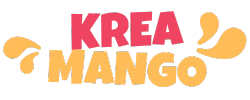Blockchain technology, most famous for powering Bitcoin, has potential uses that go far beyond just cryptocurrencies. It’s being explored in industries like healthcare and education because of its ability to provide transparency, security, and efficiency. Let’s delve into how blockchain can revolutionize these sectors.
Blockchain in Healthcare
Improving Medical Records
One of the most significant applications of blockchain in healthcare is the management of medical records. Using blockchain can make these records more secure and accessible. For instance, Healthureum, a project leveraging blockchain, aims to standardize healthcare processes and ensure quick access to medical records with an emphasis on security and confidentiality. This means that patient records are less likely to be lost or tampered with, and they can be easily shared between authorized professionals, improving the quality of care.
Enhancing Drug Traceability
Blockchain also offers solutions for tracking drug supply chains. MediLedger, a blockchain project, focuses on preventing counterfeit drugs by tracking their journey from manufacturer to consumer. This not only helps in ensuring that the drugs are safe but also aids in preventing financial losses in the pharmaceutical industry.
Facilitating Secure Transactions
Payments within the healthcare sector can also be streamlined using blockchain technology. It can reduce processing times for transactions and ensure that all transfers are secure and fraud-proof. This technology can also handle claims and billing more efficiently, reducing the possibility of billing fraud.
Blockchain in Education
Securing Academic Credentials
Blockchain can safeguard the integrity of academic credentials by making them verifiable and tamper-proof. Blockcerts is an initiative that uses blockchain to issue and verify official records, such as diplomas and certificates. This means employers can easily verify an applicant’s educational background without having to contact each educational institution, which can be time-consuming and costly.
Streamlining Administration
Blockchain can also streamline administrative processes in educational institutions. It can help in managing records of students’ grades, attendance, and academic progress in a secure way. This reduces the administrative burden on schools and colleges, making it easier to update and access student information securely.
Enhancing Collaboration and Resource Sharing
Blockchain technology facilitates better collaboration and resource sharing among educational institutions. This can be particularly useful for research projects that involve multiple organizations. By using blockchain, institutions can share resources and findings in a secure, tamper-proof environment, which enhances the quality of research and education.
Conclusion
The potential of blockchain technology extends well beyond the realms of finance. In healthcare, it promises more secure and efficient management of medical records, better drug traceability, and streamlined transactions. In the field of education, it offers secure ways to handle academic credentials, simplify administrative processes, and enhance collaboration. As we continue to explore these possibilities, blockchain could very well redefine how we manage information in these critical sectors, making processes more transparent and secure for everyone involved.

